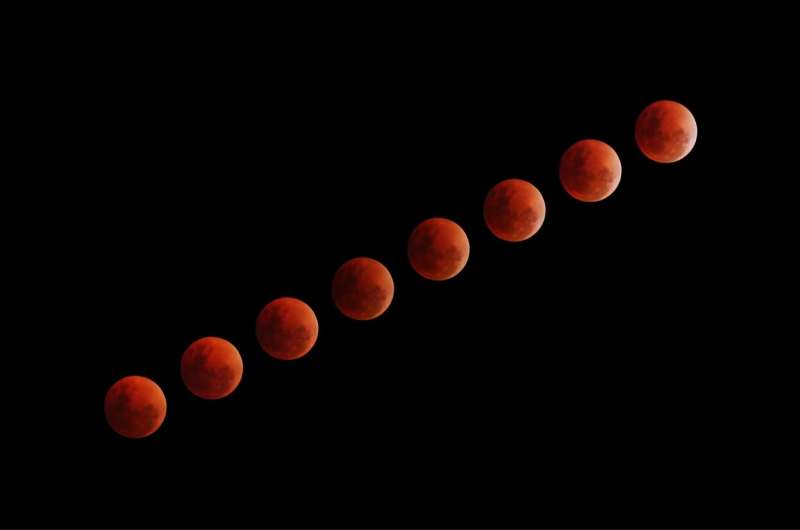Credit: Unsplash/CC0 Public Domain
A combined team of researchers from the Jet Propulsion Laboratory, California Institute of Technology and the Royal Observatory of Belgium, has found evidence that Mars has a Chandler wobble. In their paper published in the journal Geophysical Research Letters, the group describes their study of decades of data from Mars probes and what it showed them.
Approximately a century ago, astronomer Seth Carlo Chandler discovered that imperfectly round objects (such as planets) sometimes spin off their axis for periods of time. The phenomenon has come to be known as the Chandler wobble, and has been documented for planet Earth, which veers from its axis for distances up to 30 feet in a pattern that repeats approximately every 433 days. Researchers have suggested that other planets likely have a Chandler wobble, but until now, it has never been observed because measuring it on the planet scale requires precise measurements over many years. In this new effort, the researchers obtained the right kind of data from space probes that orbited Mars over many years: The Mars Reconnaissance Orbiter, the Mars Global Surveyor and Mars Odyssey. The data from the craft spanned 18 years and was considered to be precise enough to measure any existing Chandler wobble.
The data comprised gravitational effects on the spacecraft, which revealed that Mars does have a Chandler wobble, though it is much less pronounced than Earth's—the planet veers just four inches from its axis over a 200-day period.
One of the interesting aspects of the Chandler wobble is that it is supposed to stop after some period of time. Calculations have shown that Earth has been wobbling for far longer than it should have, which suggests the wobble is influenced by factors that scientists do not yet understand. Data from the space probes suggest Mars has been wobbling longer than it should have, as well. The researchers were not able to say why, but suggest finding out should be simpler than understanding Earth's wobble because Mars' geography, atmosphere and its inner structure are much simpler than Earth's.
More information: Alex S. Konopliv et al. Detection of the Chandler Wobble of Mars From Orbiting Spacecraft, Geophysical Research Letters (2020). DOI: 10.1029/2020GL090568
Journal information: Geophysical Research Letters
© 2021 Science X Network
























